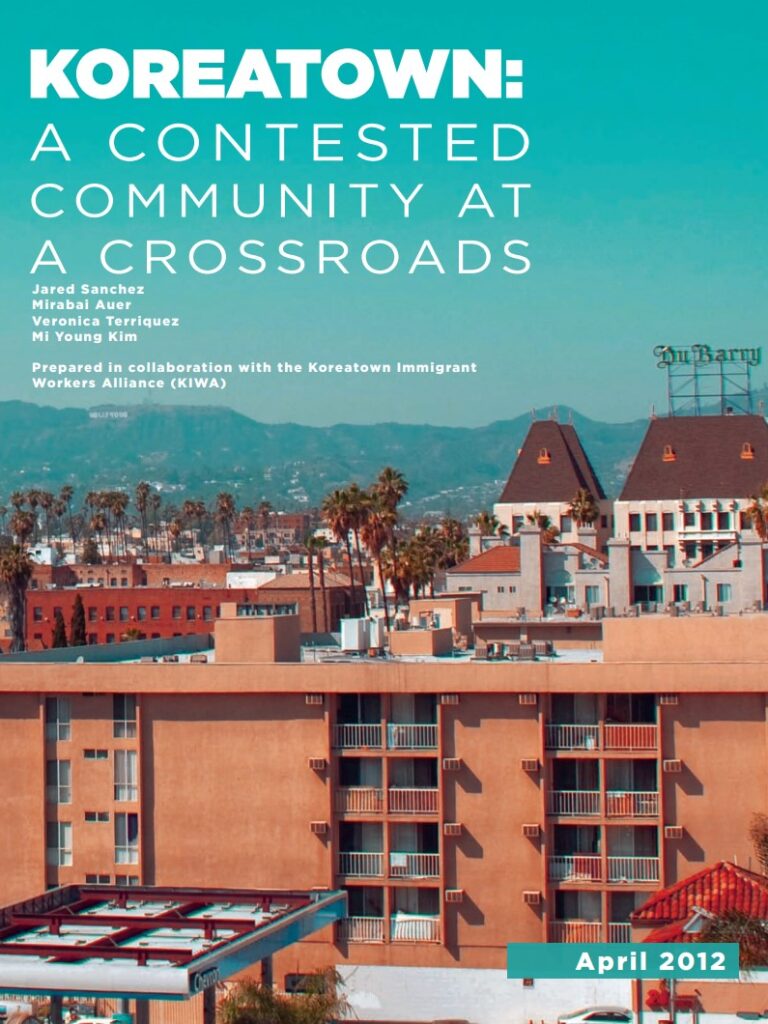
April 2012
By Jared Sanchez, Mirabai Auer, Veronica Terriquez, and Mi Young Kim
Prepared in collaboration with the Koreatown Immigrant Workers Alliance (KIWA)
Please note: reports dated earlier than June 2020 were published under our previous names: the USC Program for Environmental and Regional Equity (PERE) or the USC Center for the Study of Immigrant Integration (CSII).
On the twentieth anniversary of both the founding of Koreatown Immigrant Workers Alliance (KIWA) and the L.A. civil unrest, Koreatown: A Contested Community at a Crossroads takes stock of changes over the past two decades, lifts up new challenges, and charts the possibilities for the next twenty years.
A collaboration between KIWA and the USC Program for Environmental and Regional Equity (PERE), the report tells the story of a diverse, immigrant, working-class community caught at the crossroads of globalization and urban redevelopment–forces threatening to displace many. Koreatown has become a highly sought-after global neighborhood with new developments and businesses that are often controlled by foreign investors.
In 1992, KIWA, only a few months old, responded to the civil unrest by organizing Korean and Latino immigrant workers to fight for their fair share of income that was lost in the destruction–and then took on other abuses rampant in the restaurant industry. Twenty years later, the crisis facing low-wage workers and residents may be less visible–but the way forward is much the same. KIWA and others’ sustained, grassroots approach to urban problems can reach both the depth and scale needed to address the root causes of poverty, low-wage work, and overcrowding.
With its deep commitment to organizing residents and workers across race and language, KIWA can take a lead on how to build an L.A. that represents our hopes for a just, inclusive, and livable future.



